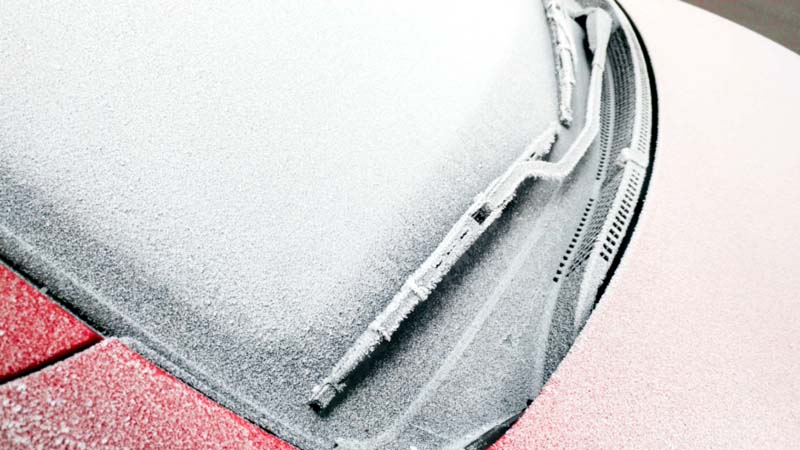![[feature] How to Remove Ice from Your Car's Windshield](https://blogger.googleusercontent.com/img/a/AVvXsEjhsDdJtpXiZfTTDMbgUx-_gMFTwn8NIdkZCABHGRCd2B3nZPSGr9Jnt1T1ngd-i_vGlXuaoQ8rMNEhNo1EqJdUrTlvdRlEQrz8fKT1xl-PinHDlViIkihFiazqyClMiZKpLwVj3_i1E2yIM3CR7IuXiABHZFrDb2ZRXXZKGgNY138lEjD2HWReO8zyDQ=s16000-rw) |
| © Provided by Motoring Research |
Unless your car has a heated windscreen, using an ice scraper is standard practice on frosty mornings. But what if you find ice on the inside of the windscreen?
Ice forms because moisture has condensed on the glass and then frozen when the temperature dropped below zero.
The best advice is to remove the moisture by opening the doors and ventilating the car. Failing that, grab your ice scraper and use the heater blowers to direct heat onto the windscreen.
Laying a cloth or towel over the top of the dashboard will soak up the water from the melting ice. Do not use de-icing fluid on the inside, as the vapours can be harmful to health.
If you buy a new Skoda, you’ll find an ice scraper in the filler cap (see above). Otherwise, it’s best to carry one in the car. Don’t attempt to free frozen windscreen wipers by switching them on. Make sure the wipers are off before you start the car – and not left in rain-sensing mode.
Read More: This Clever Hack Will Keep Your Car Windows from Fogging Up
Many cars have an integrated moisture sensor that helps the air conditioning system assess the dew effect on the windscreen. This should prevent the screen from fogging up.
Using air recirculation or having the air conditioning switched off may also cause to windscreen to fog up. To prevent this, use the air-con in ‘auto’ mode.
Keeping the inside of the windscreen dry will prevent ice from forming overnight. Knock snow from your shoes before getting in and remove wet coats from the car when you park it. You could even take out the carpet mats to dry them in your home overnight, or use rubber mats during the winter months.
Finally, when it comes to clearing snow and ice from the outside of your windscreen, do not use a credit card or anything that wasn’t designed for this purpose.
An ice scraper and/or de-icing fluid are the best solutions, while using a windscreen cover overnight is the best prevention.
See more at Motoring Research






















